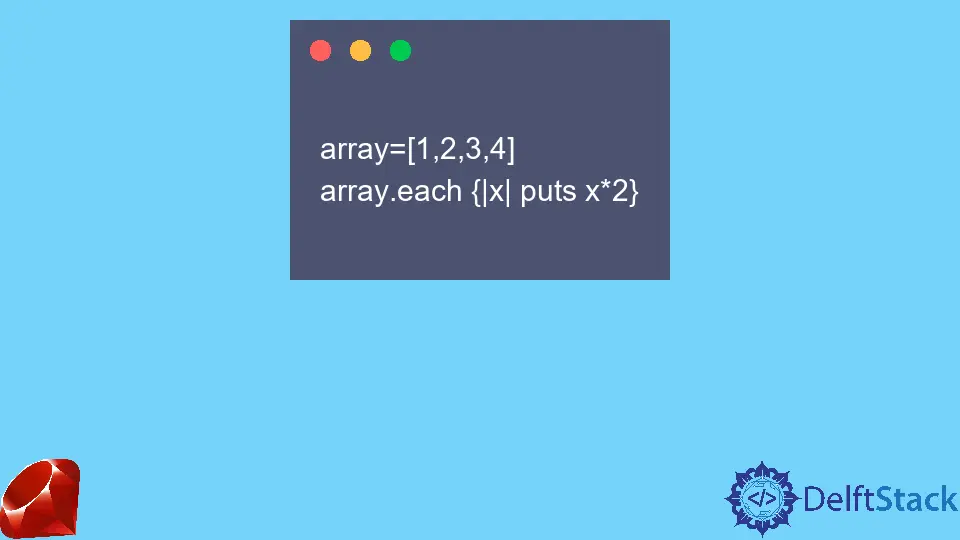each and collect Keywords in Ruby
- Understanding the Each Method in Ruby
- Exploring the Collect Method in Ruby
- Combining Each and Collect for Enhanced Functionality
- Conclusion
- FAQ

When diving into the world of Ruby programming, understanding how to efficiently manipulate collections is crucial. Two powerful methods, each and collect, allow developers to iterate over arrays and transform data seamlessly.
In this tutorial, we will explore these keywords in Ruby, providing you with clear examples and explanations to enhance your coding skills. Whether you’re a beginner or looking to refine your Ruby expertise, this guide will help you grasp the nuances of using each and collect. By the end, you’ll be equipped with the knowledge to apply these methods effectively in your projects.
Understanding the Each Method in Ruby
The each method is a fundamental iterator in Ruby, allowing you to traverse through elements of an array or a collection. When you use each, you can perform operations on each element without altering the original array. This is particularly useful when you want to execute a block of code for every element, such as printing values or performing calculations.
Here’s a simple example demonstrating how to use the each method:
numbers = [1, 2, 3, 4, 5]
numbers.each do |number|
puts number * 2
end
Output:
2
4
6
8
10
In this example, we have an array of numbers from 1 to 5. The each method iterates through each element, multiplying it by 2 and printing the result. The original array remains unchanged, showcasing how each is primarily used for its side effects rather than returning a new array.
Using each is straightforward and ideal for scenarios where you need to perform actions on elements without needing the modified data. It’s a staple in Ruby programming, providing clarity and simplicity.
Exploring the Collect Method in Ruby
The collect method, also known as map, is another essential iterator in Ruby. Unlike each, collect is used when you want to transform the elements of an array and return a new array containing the results. This is particularly useful when you need to apply a function to each element and gather the modified results.
Let’s look at a practical example of how to use the collect method:
numbers = [1, 2, 3, 4, 5]
doubled_numbers = numbers.collect do |number|
number * 2
end
puts doubled_numbers
Output:
2
4
6
8
10
In this example, we started with the same array of numbers. However, instead of simply printing the doubled values, we used collect to create a new array, doubled_numbers, which contains the results of the transformation. This method is particularly advantageous when you want to keep both the original data and the transformed data for further processing.
The collect method is a powerful tool for data transformation in Ruby, allowing developers to write cleaner and more efficient code.
Combining Each and Collect for Enhanced Functionality
While each and collect serve different purposes, they can be combined in various ways to enhance functionality. For instance, you might want to iterate over an array, perform some operations, and then collect the results into a new array. This combination allows for more complex data manipulation.
Here’s an example that demonstrates this approach:
numbers = [1, 2, 3, 4, 5]
squared_numbers = []
numbers.each do |number|
squared_numbers << number ** 2
end
puts squared_numbers
Output:
1
4
9
16
25
In this code snippet, we used each to iterate through the numbers array, squaring each number and appending it to the squared_numbers array. This method showcases how you can use each to perform operations while still collecting results into a new array, effectively combining the strengths of both each and collect.
This combination is especially useful in scenarios where you need to apply multiple transformations or when working with complex data structures.
Conclusion
In this tutorial, we explored the each and collect keywords in Ruby, highlighting their unique functionalities and use cases. The each method is perfect for iterating through collections and performing actions without modifying the original data, while collect allows for transforming data and creating new arrays. By understanding how to use these methods effectively, you can enhance your Ruby programming skills and write cleaner, more efficient code. Remember, the key to mastering these methods lies in practice and experimentation, so don’t hesitate to try them out in your own projects!
FAQ
-
what is the difference between each and collect in Ruby?
each iterates over elements without modifying them, while collect transforms elements and returns a new array. -
can I use each with hashes in Ruby?
yes, each can be used with hashes to iterate through key-value pairs. -
is collect the same as map in Ruby?
yes, collect is an alias for map, and both perform the same function. -
how do I use each with a block in Ruby?
you can use each with a block by passing a block of code that processes each element. -
are there performance differences between each and collect?
yes, collect may have a slight performance overhead due to creating a new array, while each is more efficient for simple iterations.
Aminul Is an Expert Technical Writer and Full-Stack Developer. He has hands-on working experience on numerous Developer Platforms and SAAS startups. He is highly skilled in numerous Programming languages and Frameworks. He can write professional technical articles like Reviews, Programming, Documentation, SOP, User manual, Whitepaper, etc.
LinkedIn